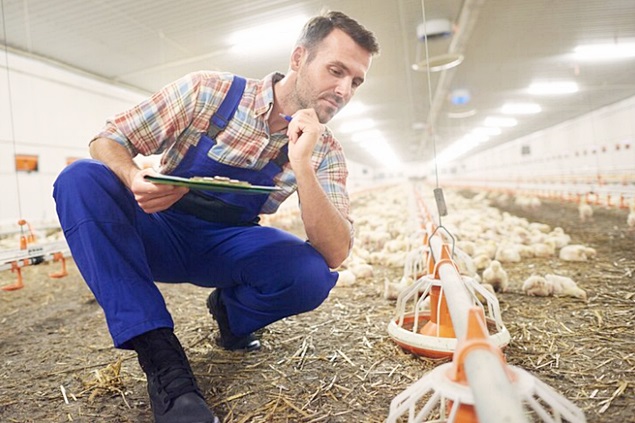1188

Reduction or even prohibition of antibiotic use in animal production is a critical and urgent concern of society, notes PigProgress.
Dangerous Abuse
Excessive use or even abuse of antibiotics in animal farming has led to several significant issues, such as the emergence of antibiotic-resistant bacteria. Improved animal husbandry practices can help reduce the need for antibiotics by preventing disease outbreaks. Feed additives and supplements for animal nutrition are among the solutions promoting animal health and partially even eliminating the need for antibiotics.
In general, feed additives and supplements are added to animal feed to support growth, improve feed efficiency, and maintain animal health. By maintaining animal health, the need for antibiotics can be reduced or even eliminated. Consequently, feed additives and supplements are an excellent alternative to avoid antibiotic use.
Not only does it maintain and improve animal health, but it also automatically improves animal welfare, as they are closely intertwined. Furthermore, the use of feed additives and supplements is often a sustainable solution: environmentally, economically, and socially.
Useful Additives
Various feed additives and supplements enhance nutrient utilization and improve intestinal health. Therefore, animals can convert their feed into performance more efficiently. Consequently, feed additives and supplements are not only cost-effective but can also reduce the environmental footprint of animal production.
Moreover, reducing antibiotic use results in lower soil and water contamination risk and increased antimicrobial resistance. Societally, there is a growing demand for sustainable, welfare-friendly, safer, and higher-quality food.
This inevitably includes the demand to reduce overall antibiotic use in animal production. Therefore, choosing the most suitable feed additives and supplements is part of the license to produce in modern and sustainable agriculture and food production.
Optimal Intestinal Function
The gastrointestinal tract is often referred to as someone's "second brain." This reference clearly underlines the importance of intestinal health. This is remarkably relevant in today's animal farming. A significant portion of feed composition decides how healthy—or unhealthy—an animal's intestine can be. Intestinal health can be defined by its internal microbiome, its digestive efficiency, and its immune function.
Intestinal ecology refers to the diversity and number of microorganisms in the gut. Diverse intestinal ecology is associated with improved health. Certain feed additives, such as probiotics and prebiotics, can support beneficial bacteria in the gut.
This allows beneficial bacteria to grow and, therefore, directly compete with pathogenic bacteria. An imbalanced intestinal microbiome can not only lead to digestive problems but also makes animals more susceptible to diseases.
The Role of the Intestine
The intestine plays a crucial role in the body, not only part of digestion but also having a significant function in the immune system. A healthy intestine can remove pathogens, reducing the risk of infections. Therefore, intestinal integrity must be supported.
Physical barriers in the intestinal mucosa, such as tight junctions or intestinal villi, prevent harmful bacteria from passing through the intestines and entering the bloodstream. Such a breach of the barrier causes significant damage through infections.
Another barrier against pathogens is a layer of mucous lining the intestines. If the intestinal mucosa becomes permeable, the so-called leaky gut syndrome occurs. This is an immediate threat to animal health, as pathogenic bacteria can pass through.
High intestinal health and integrity promote efficient digestion and nutrient absorption in animals. When the intestine functions optimally, it allows the animal to utilize its feed efficiently, leading to improved growth and performance.
Choosing the Right Feed Ingredients and Supplements
Unfortunately, there is no one-size-fits-all solution to improve and maintain intestinal health. Therefore, Denkavit Ingredients specializes in advising feed producers to make the best choice from a range of additives.
This advice is based on the solid foundation of knowledge from nearly 100 years of experience in the animal production sector.
That's why Denkavit Ingredients has a portfolio (Table 1) focusing not only on intestinal health and integrity as such but also on nutrient utilization and animal health and welfare.
All mentioned feed additives and supplements deserve detailed discussion, but for now, three of the recently innovated ones deserve special attention.
In our portfolio, we recently improved our acidifier: Denkacid XL. Due to the addition of MCFA, Denkacid XL targets not only gram-negative bacteria but also gram-positive bacteria.
Trace elements are a rather underestimated category of feed supplements and additives. One such is the zootechnical additive Terragut, approved by EFSA.
It directly and positively influences beneficial bacteria in the intestine, thus supporting intestinal health. This results in an immediately visible effect in the barn, as the consistency and color of feces are maintained at a healthy level.
Another product is HumiGut. As the name already suggests, these humic acids support intestinal health by maintaining mucosal lining and aiding the animal's natural detoxification process. As a result, an improvement in feed conversion and animal performance can be observed.
Enhance Animal and Intestinal Health
Maintaining intestinal health in animals is essential for reducing dependence on antibiotics. A diverse and well-balanced intestinal microbiome and a robust intestinal barrier contribute to better digestion, nutrient absorption, immune function, and overall animal welfare.
Using feed additives and supplements from the Denkavit portfolio improves animal and intestinal health.
These products have been carefully selected for their proven positive effects as a single component of the feed. They have an even stronger effect if combined correctly depending on specific situations and factors affecting animal production. We always say we grow together. (Photo: Freepik)





